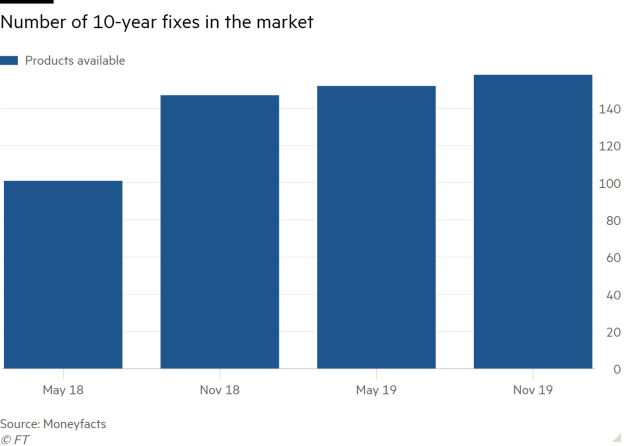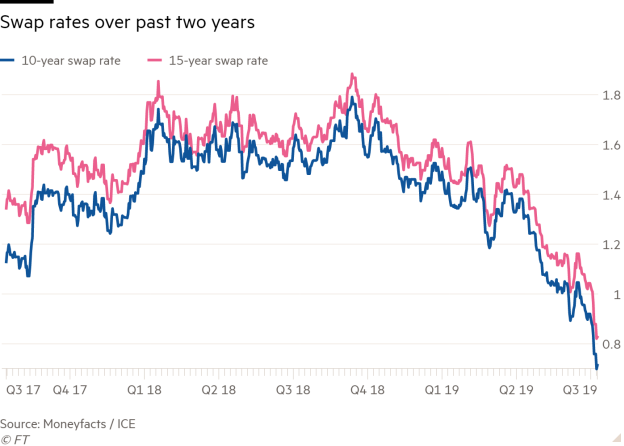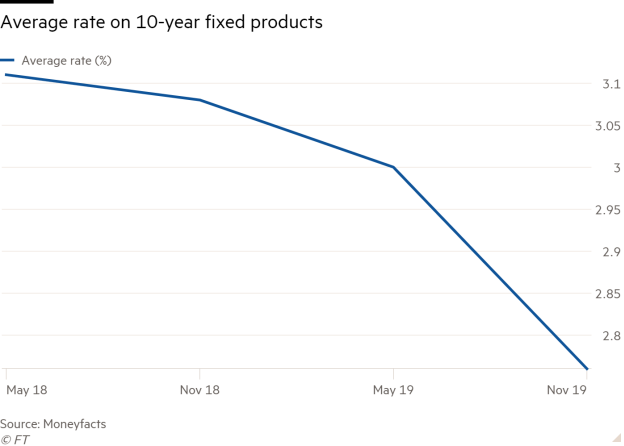
The rise of longer-term fixed rate mortgages is a strong indicator of a lack of consumer confidence in the economy, brokers have warned.
Data from Moneyfacts showed the number of 10-year fixed rate products in the mortgage market has jumped 56 per cent since May last year, with consumers now having 158 decade-long products to choose from.
The products are available from more than 17 providers, up from 13 a year ago and a mere nine in 2017.
Last week (November 26) The Nottingham for Intermediaries introduced a ten-year fixed mortgage into the retirement interest-only market and earlier this year Virgin launched the first 15-year fixed rate deal the market has seen in more than a decade.
The added competition has also prompted rates to fall 35 basis points over the past 18 months from an average of 3.11 per cent to 2.76 per cent.
According to Moneyfacts an average of 2.76 per cent is a record low for 10-year fixed products.
Mortgage brokers think lenders moving into the longer-term fixed space is a sign they are aiming to cash in on what they think will be a sustained period of low interest rates.
This is backed up by current swap rates — the rates at which the money markets lend among themselves and to lenders — which partly underpin the rates at which consumers can borrow.
Data from ICE Swap Rate provided by Moneyfacts showed these long-term rates have reduced over the past two years.
A fall in swap rates indicates that interest rate futures markets have already factored in a possible base rate cut due to uncertain economic conditions and can provide lenders with the certainty that a lengthy fixed-term is an overall good deal for the bank, according to Nick Morrey, product technical manager at John Charcol.
He said: “Lenders are cottoning on to the fact it’s a good deal for them. Usually there’s a healthy gap between two, five and 10 year swap rates but there’s barely a gap.”
Director at Champion Hall and White, Daniel White, agreed. He thought lenders had predicted rates would stay low, so locking a consumer in for a decade was “only a good thing for them”.
Mr White added a long fix means lenders do not have to pay product transfer fees for those remortgaging or advertise to their existing borrower.
On the consumer side, Carl Shave, director at Just Mortgage Brokers, said people were opting for long-term fixes due to political uncertainty.
He said: “While uncertainty continues to be rife in our economic and political environment, it appears that confidence remains strong in the markets for the continuation of low interest rates. Borrowers are keen to give themselves the security rather than roll the dice of chance."
Mr Morrey added: “People are feeling less optimistic about the economy in general and in periods of uncertainty, people will look towards fixed rates.
“It’s totally understandable because they want some certainty and mortgage payments are usually their biggest commitment. So the mix of low rates and this sentiment has created the perfect storm.”








